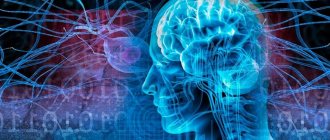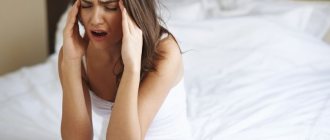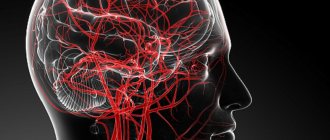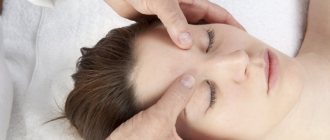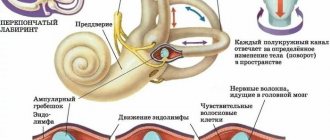Organs responsible for maintaining balance
A person feels how his body is located in space for a reason. For this purpose there is a special organ of balance. It is located in the auditory cochlea. Scientifically it is called the vestibular apparatus. It's structured is complicated. The main parts are the vestibule and three semicircular canals.
In the vestibules there are special cells. They have a long hair-like process. It is immersed in dense endolymph. It moves from changes in the position of the head and torso. This movement causes the hair of the receptor cells of the vestibular apparatus to vibrate. This vibration is recorded and transmitted along nerve fibers to various parts of the central nervous system.
Causes of dizziness
Before treating a problem, you must first know its source. There are many factors that can cause dizziness. The causes and treatment of this problem with folk remedies are very relevant, since it is very common.
The etiology of dizziness may be as follows:
- stressful conditions;
- poor nutrition;
- smoking;
- taking medications;
- neurological pathology;
- infectious diseases;
- osteochondrosis of the cervical spine;
- arterial hypertension.
The best folk remedies for the elderly
- Prepare a drink from garlic and ginger. Grate a medium-sized ginger root and 3-4 cloves of garlic, add hot water, let it brew for at least an hour. Strain and take 100 ml 3 times a day before each meal. The composition improves the functioning of the immune system and improves blood flow in the brain.
- If your medical history shows hypertension, drinking tea with honey and lemon is helpful.
It is dangerous to prescribe this or that herb, mixture or decoction on your own . Check with your healthcare provider for restrictions.
How to get rid of dizziness at home? Folk remedies cannot always help a person against dizziness, so it is important to know about the treatment of dizziness not only with them, but also with drugs and with the help of vestibular gymnastics. Read about all this and about BPPV on our website.
What to take if you feel dizzy with cervical osteochondrosis?
With osteochondrosis of the cervical spine, the intervertebral discs are transformed, causing spasms and inflammation of the muscles. The vessels supplying the brain are compressed and the brain suffers from a lack of oxygen, which causes attacks of disorientation, headache, nausea, and there is a risk of fainting. Several recipes will help relieve symptoms:
Bake a flat cake from rye flour and apply it hot to the neck area for 10-15 minutes.- Grate 1 potato, mix it with a spoon of honey, put the mixture in gauze and apply to the sore area for 15-20 minutes. Repeat the procedure 3 times every 6 days.
- Mix 2 tablespoons of vodka, half a glass of flower honey, aloe juice and black radish in equal proportions. Take on an empty stomach 1 time per day. The course is a week. Store the mixture in the refrigerator.
- Prepare a soothing ointment from a large spoon of animal fat and the juice of a hop cone. Apply the medicine a little at a time to the neck area during an attack of dizziness.
Dizziness when stressed
We live in a world where constant stress has become the norm. The noise of the metropolis, dissatisfaction with the service of ordinary people in shops and organizations, large emissions of carbon dioxide into the atmosphere - this is just a small fraction of what a city dweller experiences every day.
And along with this, stress can lead to serious disruptions in the functioning of the vestibular apparatus. This occurs because the constant release of adrenaline constricts the blood vessels. Thus, blood supply to all organs and tissues is affected.
Along with poor blood supply, oxygen saturation of tissues is always impaired. While most organs are more or less adapted to this, brain cells are very sensitive to hypoxia. Due to lack of oxygen, they quickly die and thereby cease to perform their most important function - regulation of life.
This leads to the fact that signals from the vestibular apparatus begin to enter the brain slower or are processed incorrectly. As a result, the person will feel dizzy.
Causes
The factors causing dizziness can be very diverse and even innocent. They can be triggered by:
- Long trips in vehicles;
- Pregnancy;
- Use of certain groups of medications;
- Stressful situations, worries, emotional or physical exhaustion;
- Sudden body movements.
In addition, the occurrence of dizziness can be a harbinger of serious illnesses:
- Violation of the vestibular apparatus;
- Diseases of the cardiovascular system;
- Inflammatory or pathological processes of arteries in the brain;
- Infectious diseases;
- Poisoning;
- Allergic reactions;
- Injuries;
- Neurotic diseases;
- Osteochondrosis in the neck area.
With regular attacks of dizziness, it is necessary to treat not the symptom, but the disease itself - the vestibular apparatus, nerves, blood vessels, heart, etc. Thanks to traditional medicine, you can get rid of unpleasant painful sensations, receive treatment and carry out preventive measures for the whole body.
Dizziness and poor diet
Trophics, or, simply put, cell nutrition, is a key factor in the existence of any living organism. The body needs useful substances to build new cells, for energy, and for the proper regulation of these processes.
These substances include not only well-known proteins, fats and carbohydrates, but also minerals and vitamins. The latter are part of many enzymes that perform complex work and cannot be avoided.
If a person’s diet is not balanced and does not contain a sufficient amount of essential macro- and microelements, then sooner or later this will lead to irreversible damage to various cells. If this happens in the vestibular apparatus or in the sensory areas of the cerebral cortex, which are responsible for the functioning of the balance organ, then the person will begin to experience dizziness and hearing loss.
Tobacco smoking as a cause of dizziness
There is no point in saying that smoking is harmful. This is a scientifically proven fact. But the fact that smoking leads to dizziness may seem implausible to some. At the moment of inhaling tobacco smoke, a feeling of slight dizziness occurs, but it is not associated with a disruption of the vestibular apparatus, but with the fact that the brain simply does not have enough oxygen at that moment.
This only happens to novice smokers, and everyone knows this very well. Later, the body gets used to it, and the person no longer experiences dizziness while smoking.
These judgments are erroneous. Brain damage due to temporary hypoxia caused by tobacco smoke during smoking does not go away. Over time, brain cells begin to die, and, as in the case of stress, the regulation of the vestibular apparatus ceases to be carried out. The longer the smoking experience, the more cells will be damaged, the more pronounced the manifestations of improper functioning of the balance organ will become.
How does dizziness manifest?
We recommend
“How to care for a bedridden elderly person” More details
During dizziness, it seems to a person that not only his head is spinning, but that he himself is spinning, or that the objects around him are spinning. When dizziness occurs in older people, nausea may occur, a feeling similar to intoxication and other unpleasant symptoms may occur, including loss of consciousness and falling.
Old people begin to blur before their eyes not only from external influences, but also due to the occurrence of diseases. Perhaps any person over the age of sixty has at least once felt suddenly dizzy. If this happens regularly, it becomes a serious problem that interferes with a normal life. In order to properly deal with the disease, it is important to determine the causes of its occurrence.
Dizziness due to medication
Side effects of medications often include dizziness. Sometimes this is temporary, for example, when the patient is initially given a large dose of medication to create a satiating effect. When the desired therapeutic effect is achieved, the dose is reduced and the dizziness disappears. But it happens that such a side effect is present throughout the entire duration of taking the medicine, even in the optimal dosage. This will already constitute intolerance to the drug.
There are many drugs that can cause dizziness. Typically these are drugs from the following groups:
- vasoconstrictors;
- nootropics;
- antihistamines;
- tranquilizers;
- sedatives.
It should be noted that not all people are susceptible to dizziness due to taking such drugs. One patient may tolerate a drug well, but another will develop side effects from the same drug. Everything is very individual, which is why pharmaceutical companies are developing new medications so that the doctor has the opportunity to replace the patient’s vital drug with another drug that he will tolerate well.
What is rhinitis?
This is an inflammation of the nasal mucosa. The disease has two stages, each of which is accompanied by characteristic symptoms. In some cases, the disease takes a protracted course and then we are talking about a chronic form of the disease.
Otolaryngologists warn:
At the first signs of illness, you should definitely take medications for rhinitis.
Otherwise, the disease can lead to serious complications and become chronic, difficult to treat. In addition, people with a severe runny nose, sneezing and snot continue to visit public places, ride public transport and go to work, putting others at risk of infection.
A runny nose is extremely contagious! Young children, elderly people and patients with weakened immune systems are particularly susceptible to infection.
Attention!
You should not use any traditional methods for a runny nose! In cases where a baby, an elderly person or a patient suffering from any serious chronic diseases has a runny nose, treatment is carried out only after consultation with a doctor. Thus, with many forms of the runny nose, such “grandmother’s” treatment leads to a significant deterioration of the condition. For example, when instilling onion or garlic juice, severe irritation of the already inflamed mucous membrane occurs. It swells even more, sneezing intensifies, nasal breathing worsens.
How to treat a runny nose to prevent complications and the disease becoming chronic? Modern medicine offers many medicines - these are effective drugs for runny nose of any kind.
Migraine as a cause of dizziness
Headaches, or migraines as they are called, may also be accompanied by dizziness. Most often, the cause of such conditions is a violation of the blood supply to the brain. There are many diseases that are accompanied by such disorders:
- residual encephalopathy;
- epilepsy;
- vertebrobasilar artery syndrome;
- cervical osteochondrosis.
In general, the mechanism of dizziness is the same as during stress. Poor filling of the brain vessels with blood leads to ischemia of nerve cells and, ultimately, to their death. This causes headaches and dizziness.
Anti-dizziness medicine for older people
What drug treatment is used for dizziness in older people? Since the diagnosis is so common, there are a number of drugs that make attacks less frequent and have a beneficial effect on the brain. These are so-called nootropics, that is, drugs that accelerate neural processes in the brain. They are excellent for helping with memory loss, complications of mental activity, sclerosis and dementia. In addition, they can be prescribed to improve blood circulation, to combat prolonged fatigue, insomnia and depression.
Nootropics have a wide spectrum of action and are completely safe for the body. They can be given to children and prescribed to absolutely healthy people for whom maximum concentration at work is important. But you should not try to choose a drug for yourself; let a doctor prescribe it. The main nootropics are Glycine, Phenotropil, Piracetam, Cinnarizine, Bilobil.
We recommend
“Boarding home for the elderly: how to place an elderly relative there” More details
Any of these medications improves blood circulation in the vessels of the brain, strengthens the walls of blood vessels, fights hypoxia, and establishes neural connections in the central nervous system. Some drugs have a sedative effect. Medicines in this group improve cellular metabolism and activate energy processes inside cells. This increases the ability to perceive and remember information and learn. Nootropics are used to treat dizziness in older people because they improve mood and sleep, and make a person more active.
Here is a more detailed description of some nootropics:
- Piracetam is on the first step in popularity. Many people experience sleep disturbances when taking the drug, so it is not prescribed for use in the evening, only before lunch.
- Cinnarizine. It is prescribed not only as a nootropic, but also as an anti-allergy remedy. It should be borne in mind that the drug causes drowsiness, dry mouth, and disruption of the gastrointestinal tract.
- Glycine is good because it does not cause adverse reactions. A very popular drug among students, especially during study periods. The main component is gamma-aminobutyric acid, which accelerates brain function and is important for metabolic processes.
- Phenibut. Its main component is the same gamma-aminobutyric acid. This medicine may cause you to feel sleepy, especially when you first start taking it.
How else to treat dizziness in older people? Nootropics based on herbal components are also used:
- Vinpocetine. The basic component is the small periwinkle. It has a beneficial effect on brain function, improves blood circulation in areas of blood vessels susceptible to ischemia (relaxes their walls). Helps lower blood pressure.
- Bilobil. The main herbal component is ginkgo biloba. Supplies the brain with oxygen and glucose, making blood vessels more resilient in case of oxygen deficiency. Improves attentiveness, memory and learning abilities. Has a weakening effect on numbness of the limbs.
All of the above remedies and others like them should be taken for at least three months. Only after a month will the first changes be noticeable. The frequency of administration is usually one to three times a day. The treatment regimen must be prescribed by a doctor.
Infectious diseases as a cause of dizziness
Infectious agents are capable of infecting various organs and systems. The nervous system in general and the brain in particular are no exception. Meningococcus can cross the blood-brain barrier and cause a serious disease called meningitis. At its very beginning, it can manifest itself as dizziness and headache.
Inflammatory lesions of the middle ear, which are also caused by bacterial agents, can also be accompanied by dizziness. The mechanism of this phenomenon in this case is indirect. As mentioned above, the vestibular apparatus is located in the auditory cochlea.
This organ is located in close proximity to the middle ear. If the pathological process spreads and affects the auditory cochlea, the balance will be disrupted. This will eventually lead to dizziness.
Dizziness with osteochondrosis
Degenerative changes in the interarticular discs of the cervical spine can also lead to dizziness. In a patient suffering from cervical osteochondrosis, blood flow in the vertebral arteries is disrupted.
Despite the fact that the main flow of oxygen and nutrients to the brain is carried out by the carotid arteries, the vertebral arteries also play an important role. If their function is insufficient, then the functioning of the balance organ will also be disrupted.
Often, cervical osteochondrosis leads to pinching of the spinal nerves. This is accompanied by pain. It may also cause dizziness. In this case, the mechanism of occurrence is reflex.
All nerve plexuses are in close interaction with each other. Likewise, the spinal nerves of the cervical region signal the movement of the head, and this is directly related to the organ of balance. Pathological pain impulses can cause disturbances in it.
Tips for improving dizziness
To properly treat any disease, you first need to understand why it occurs. So with dizziness, it is important to know the reasons for this phenomenon. This disease consists of improper functioning of the vestibular apparatus, in which objects around a person constantly rotate without any reason for this.
There is a concept of “natural dizziness”, in which the resulting rotation is caused by a previous shake-up of the body. Rocking on a ship, prolonged circular rotation in one place, sudden changes in body position on a carousel are the reasons for the occurrence of such a feeling, which is not a manifestation of disorders in the body. But if an unpleasant symptom occurs when standing up at any time, or for no reason, even when the person does not move from one place to another, examination and treatment are required.
Vertigo (dizziness) is a symptom that does not pose a serious danger to the body. But diseases that can provoke the appearance of such a symptom are sometimes very dangerous.
Various tumors, brain hemorrhages and other serious problems have, among other symptoms, dizziness.
The doctor receives test results, after which he draws conclusions about the state of the body and proposes a treatment plan for the disease. To achieve a positive result, you can improve the treatment regimen by the following steps:
- When consuming herbal tinctures, it is important to make sure that there is no allergic reaction to any component, and traditional medicine recipes can be used in conjunction with the remedies suggested by the doctor.
- It is worth recording data on the time of onset of dizziness, blood pressure, and glucose levels. It is important to try to notice what actions cause dizziness, after which an unpleasant feeling arises. For example, with cervical osteochondrosis, any careless movement of the head causes an attack of unpleasant sensations.
- If you experience dizziness at home, if it is severe and prevents you from moving normally even around your home, you should carefully lie down on the bed and wait until the symptoms disappear. If a problem arises at work or in another crowded place, you should find a place where you can sit and relax. It is advisable to try to lie down so that the problem goes away faster.
- Unpleasant sensations that arise during movement are usually weakened when you shift your gaze to a stationary object. Sometimes it feels better if you close your eyes or look far ahead.
- You should exclude spicy, fatty foods from your diet and minimize salt intake. It is important to eat foods that contain large amounts of potassium and phosphorus.
What to do if you often feel dizzy?
The appearance of any symptom in yourself, against the background of complete well-being, cannot be ignored. And if you feel dizzy, even more so. In addition to the causes of dizziness listed above, there are also more serious conditions that can cause such a clinical picture. These include:
- ischemic and hemorrhagic stroke;
- a brain tumor;
- various types of shock;
- respiratory failure;
- heart failure.
If you start to feel dizzy, and even without any reason, you should definitely consult a doctor. In general, a neurologist deals with such problems, but for starters, you can simply contact a therapist. He will assess the likelihood of certain causes of dizziness and draw up an examination plan.
Why do you feel dizzy?
By far the most common cause of dizziness is taking medications. Dizziness is a side effect of various medications.
These include:
- Medicines to lower blood pressure.
- Medicines to lower blood cholesterol levels.
- Hormonal drugs.
Sometimes, to get rid of dizziness, no serious intervention is required, just changing the medication is enough.
Damage to the cervical spine is the second most common cause of dizziness. For example, displacement of the upper cervical vertebrae.
If a person has a cervical hernia, then in addition to dizziness, he will be plagued by very severe pain radiating to the arm. In general, it is not difficult to understand that dizziness is a consequence of damage to the cervical spine, since pain always comes to the fore. They can be concentrated both in the neck itself and in the back of the head, or under the back of the head. Another distinctive sign of pathology of the cervical spine is increased dizziness when turning the head. You can do a simple test yourself. It is enough to turn your head to the side while sitting. If at the same time the dizziness intensifies, then you really need to examine the spine.
The third most common cause of dizziness is various brain injuries. These could be his strokes, injuries or tumors. This pathology can be excluded after undergoing an MRI of the organ.
The fourth cause of dizziness is emotional shock. This can also include stress, overwork, depression. Even some emotions can lead to dizziness, for example, fears or the serious problem of choice facing a person.
We also must not forget about such a cause of dizziness as damage to the auditory nerve or inner ear. This type of dizziness is called peripheral dizziness.
Some dietary habits can cause dizziness. For example, vegetarianism. Health problems develop due to a lack of B vitamins and other microelements. This also includes fasting and a low-carb diet. Dizziness develops when blood sugar levels drop sharply.
Some women may experience dizziness during menstruation or pregnancy. Menopause is that period in the life of representatives of the weaker half of humanity, during which they may begin to experience dizziness. At the beginning of menopause it will be especially intense, and over time it weakens and disappears altogether.
Otitis (ear inflammation) is one of the ENT pathologies that can trigger the development of dizziness. This also includes colds: flu, acute respiratory infections, acute respiratory viral infections, etc.
Pregnancy and dizziness
Such a special condition of women as pregnancy is also often accompanied by dizziness. This is due to the restructuring of the body, aimed at the need to supply nutrients to the fetus. If this restructuring takes place quickly and intensively or somehow incorrectly, then the expectant mother’s body as a whole, including the brain, will experience a lack of oxygen and nutrients.
This will ultimately lead to the fact that a woman in this position will feel dizzy. However, most often such phenomena are only temporary and pass quickly.
Traditional medicine recipes for dizziness
If the dizziness is not due to serious organic brain damage or damage to the balance organ, then you can resort to unconventional methods of treatment. It is best to treat dizziness with folk remedies only after prior consultation with your doctor.
Otherwise, you can do harm rather than alleviate the condition. Most often, herbal preparations are used, but along with medications. This is how the best therapeutic effect is achieved.
Herbal remedies are gentle, so they are always taken for a long time. The following herbal remedies can help get rid of dizziness:
- Eleutherococcus;
- Hawthorn;
- Dandelion;
- Coltsfoot;
- Yarrow;
- Baikal skullcap;
- Basilisk;
- Black cohosh.
Usually these remedies are used in the form of decoctions and tinctures. The minimum course of treatment is thirty days. Then a break is taken for the same period, and the drug is changed. These herbs equalize blood pressure, improve metabolism in nerve cells and increase overall tone. All this has a positive effect on the functioning of the balance organ.
Some berries also have the same effect. They are used both natural and in the form of fruit drinks and juices. These include:
- Chokeberry;
- Cranberry;
- Black currant;
- Watermelon;
- Plum;
- Blackberry;
- Strawberries;
- Rose hip.
Prevention methods
How to get rid of dizziness at home? You can quickly overcome this disease if you follow these recommendations:
- You need to sit on the very edge of the bed. Then smoothly change position and lie on your right side, on your back and only then on your left side. You need to stay in each new position for about 20 seconds. Turns should be repeated until the condition returns to normal.
- Massage helps a lot with dizziness and related disorders. It is recommended to perform it for no more than two minutes. First you should massage your temples clockwise, and then counterclockwise.
- You can eat half a teaspoon of ground ginger root. This spice allows you not only to quickly restore your performance, but also prevents the appearance of new attacks of dizziness.
- Using pressing movements, you need to massage the occipital region, but it is better to start from the top of the head.
- Dizziness can also be cured by exercise. You don't have to go to the gym for this. You just need to do a few squats at a slow pace, and the discomfort will go away.
From the editor: What is a pituitary adenoma
Such simple tips allow you to cope with the disorder in emergency situations when it is not possible to seek qualified help.
Your doctor should tell you how to treat dizziness. However, many are more concerned about the issue of preventing the disorder.
It should begin with normalizing the work and rest regime. Before going to bed, you can take leisurely walks, and be sure to ventilate the room. You need to give up bad habits and try to engage in feasible sports.
Any attending physician knows that the basis for preventing any disease is proper nutrition. This means that it is necessary to completely eliminate so-called food waste from the diet. This includes fried and fatty foods, alcohol, fast food, and canned foods. The basis of the diet should be foods rich in protein and fiber.
People prone to depression should try to learn how to deal with stress. In this case, psychologists can help a lot.
Folk remedies for dizziness
Treatment of dizziness using traditional methods at home is quite accessible to every person who is faced with this problem and does not require complex actions. Let's take a closer look at what exactly can help restore good health.
Therapeutic exercise and hydrotherapy
If you have dizziness of neurotic origin, which is caused by long-term stress, then in this case, physical therapy without heavy loads and hydrotherapy are recommended: take a contrast shower or not hot baths.
Massage for dizziness
Onion for dizziness
An ordinary onion can help in this unpleasant situation: you need to cut the onion into two halves and rub the cut side on your temples.
Sea kale
For frequent dizziness of unknown origin, you should eat a teaspoon of dried seaweed before meals. And without wasting time, contact the doctors to establish the cause of the ailment.
Anise drops with chocolate
If you feel dizzy, then take a piece of chocolate or sugar, put two drops of anise oil on it (for internal use) and eat it.
Mustard plasters for dizziness
When you feel dizzy, you just need to take a small piece of mustard plaster and put it on the bridge of your nose, or you can put mustard plasters on your calves. After this, you need to lie down, relax in silence, close your eyes and completely relax.
Plantain infusion
Another simple and safe folk method for treating dizziness using plantain.
Preparation:
- Grind fresh plantain leaves or you can take dry ones. We need to take - 1 tbsp. spoon of leaf, crushing it.
- Pour boiling water over plantain - 1 cup.
- Leave covered for one hour.
- Then filter, add honey to the infusion - 1 teaspoon.
How to use:
We drink the resulting medicinal infusion in one dose at night. The course of treatment is 10 days.
This is a simple folk remedy for dizziness: pour two tablespoons of plantain - its fruit, 2 cups of boiling water and leave covered for an hour. Then strain and drink the resulting infusion throughout the day, 30 minutes before meals.
Recommendations and tips
Home treatment will be most effective if you lead a healthy lifestyle. Some simple recommendations and tips will help with this:
Daily regime
It is important to go to bed and get up at the same time, without leaving long gaps between sleep. If a person falls asleep, either early in the evening or closer to the morning, then the head will constantly feel dizzy, which will be accompanied by other symptoms
Proper nutrition. You need to watch your diet. It should contain products that replenish all minerals and vitamins. It is advisable to give up alcohol, coffee, salty and sweet foods, or consume them in moderation without overeating. Physical activity and lifestyle. A person who spends a lot of time sitting should do exercises regularly. You need to warm up at least every half hour for a few seconds. It’s even better if you exercise regularly - this is another way to normalize your condition and cure dizziness at home. But you should warm up only if a person feels good and does not lose orientation. Walks in the open air. Even a short stay in the fresh air will help normalize well-being, especially if the patient spends most of his time in a stuffy room. You should also open the window before going to bed, ventilate the apartment more often, or purchase a special air humidifier. Thermal impact. For people suffering from severe dizziness, another effective method of treatment at home is a regular heating pad. It should be applied to the back of the head while in a lying position. It is advisable to wait at least 10 minutes. Massage. Massage of the temples and the back of the head will help both after dizziness and at its height. Don't put too much pressure on your head. You can use special hand massagers or a regular comb with a large number of teeth.
If you experience frequent dizziness, you should pay attention to the quality of your sleep. It is not recommended to sleep without a pillow or, conversely, on a pillow that is too high
This is especially important for diseases of the cervical spine. You can minimize or completely eliminate dizziness due to osteochondrosis if you choose a comfortable pillow so that your neck does not become overstrained during sleep.
Dizziness, as a symptom, does not pose a danger to human life. However, sometimes it indicates serious health problems, including tumors and ruptured blood vessels.
Before starting any therapy, it is important to listen to the advice given by traditional healers. In most cases, they allow you to reduce the manifestation of this unpleasant symptom without harming your own health.
- If you decide to treat dizziness with folk remedies, you first need to make sure that you are not allergic to the components of the remedies. It is also worth consulting with your doctor about their compatibility with the medications you are taking.
- When you feel dizzy on the road, you can try to focus your gaze on one stationary object. Some people get rid of this disorder by simply closing their eyes, while others need to look into the distance.
- During therapy, you should try as much as possible to exclude the following foods from your diet: cheeses, spicy and fatty foods, sweets and baked goods. It is better to limit the amount of salt you consume. The diet should be varied with seafood, nuts, legumes and bananas.
- At home, simple rest can help with dizziness. You can lie down for a while and wait out the attack. It’s also not worth risking your health at work. You can lean back in your chair. If rest does not help, you need to seek help from a doctor.
- During therapy, it is necessary to constantly keep a health diary. It should record blood pressure and blood glucose readings every day. You can notice after which attack the malaise appeared. For example, after a sharp turn of the head or mental stress. This information will be useful to the attending physician.
Such simple recommendations will only benefit everyone. Using a health diary, you can try to determine the cause of your illness, and through diet, you can cope with migraines. What other ways traditional healers offer to combat dizziness will be discussed further.
Treatment of dizziness with herbs
For weakness and when you often feel dizzy, herbal treatment is recommended.
Herbal remedy for dizziness
Ingredients:
- Motherwort herb - 1 tbsp. spoon;
- rose hips - 1 tbsp. spoon;
- meadowsweet flowers - 1 tbsp. spoon;
- hawthorn flowers - 1 tbsp. spoon.
Preparation:
- Grind the plant material, mix and pour one liter of boiling water.
- Let the broth brew for one day, preferably in a thermos.
- After this, we filter the medicine and take it.
How to use:
We drink the medicinal infusion one glass, three times a day, 30 minutes before meals. Please note that meadowsweet flowers significantly improve blood circulation in the brain and have a positive effect on its functioning.
Herbal mixture for severe dizziness
Ingredients:
- Linden blossom - 75 grams;
- mint - 100 grams;
- white peony root - 50 grams.
Preparation:
- We chop and mix the raw materials.
- Take two tablespoons of the herbal mixture and pour two glasses of boiling water into a thermos.
- We insist the composition for 12 hours.
How to use:
You need to drink the infusion, after straining it, 100 milliliters in four doses, half an hour before meals.
You can also drink an infusion of hawthorn flowers and fruits, brewing it like regular tea.
Treating dizziness with nettles
Ingredients:
- Dry nettle herb - one tablespoon;
- apple juice - 150 milliliters;
- water - 150 milliliters.
Note!
To prepare the medicine, you need to take only fresh apple juice, since juice from packages is completely unsuitable for this purpose.
Preparation:
- Pour boiling water over the nettle and leave to steep for four hours, covered or in a thermos. If you don’t have a thermos, you can wrap the container with the infusion in a warm blanket.
- After the infusion is ready, we will strain it and add apple juice to it.
How to use:
Drink nettle - apple mixture three times a day, 100 milliliters, 30 minutes before meals.
We store the infusion in the refrigerator and prepare a fresh portion every day.
The course of treatment is two weeks. This course can be carried out several times a year for the treatment and prevention of dizziness.
Folk remedies for dizziness help in almost all mild cases. Sometimes they are even used as monotherapy. This is good for those who prefer to use only natural remedies for treatment. But we must not forget that if the cause is serious, then in this case there is no way to do without medication.
Causes of dizziness in older people. Treatment secrets
The older a person gets, the more often he notices that he feels unwell, physical discomfort and other unpleasant symptoms. Dizziness is common among older people. Some try to cope with the disease on their own, some turn to doctors. They, in turn, have recently reported that young people are increasingly complaining about this disease. Let's look at the causes of dizziness in older people. We will also talk about what treatment doctors can prescribe.
What makes you dizzy?
When you feel dizzy, it seems as if all the objects around you are moving relative to your body. This condition is accompanied by crippling nausea, which sometimes turns into vomiting. A person who has lost his balance experiences hearing impairment and spots appear before his eyes. Sometimes this causes people to lose consciousness and suffer serious injuries.
The vestibular apparatus is often to blame for all this. It is this organ that perceives how the position of the head and body in space changes and identifies the direction of movement in a person. The vestibular apparatus is a part of the inner ear, a complex receptor of the vestibular analyzer.
Headaches may occur from the appearance of atherosclerotic plaques, microscopic blood clots, and from changes in the composition of the blood. In addition, there will be a loss of balance.
What else makes older people dizzy?
- Previously received injuries and past inflammations.
- Ischemia, which disrupts the blood supply to the middle ear.
- Prolonged overwork, sleep disturbances, fatigue.
- Reduced oxygen content in the body, in individual organs and tissues.
- Frequent sharp jumps in blood pressure.
- Diabetes mellitus, which causes glucose levels to fluctuate frequently.
- Depression, Parkinson's disease, Alzheimer's and other diseases of the nervous system.
- Cervical osteochondrosis and other pathologies of the spine in which nerve endings are pinched.
- Lack of vitamins.
The cause of dizziness in older women is often hormonal disorders that appear during menopause.
Doctors report that dizziness can be systemic and non-systemic. In the first case, the eyes become dark, the head is periodically dizzy from high blood pressure, from stress, from overwork or from diabetes.
In the second case, the head is dizzy due to interruptions in the functioning of the vestibular apparatus, as well as due to a malfunction of the visual analyzer (this can cause a person to constantly feel as if objects are moving).
People often feel dizzy after taking medication. Many medications cause dizziness as a side effect. Tell your doctor about the medications you are taking.
When taking a number of medications separately, no side effects are observed. However, the simultaneous use of certain drugs causes dizziness. If your dizziness is due to medications, your doctor will create a medication schedule. He may also stop taking certain medications.
How to treat dizziness in old age?
First, the patient needs to contact a therapist and report that dizziness occurs regularly. You also need to tell how often they happen and in what situations. The therapist then redirects the patient to a neurologist, otolaryngologist or endocrinologist. Doctors determine the causes of dizziness by examining the patient. If necessary, they prescribe examinations and tests that will help clarify the diagnosis.
How is anamnesis and external examination performed?
First, the doctor checks whether there is dizziness or whether the patient is mistaken. Elderly people often mistake one condition for another. During the examination, the doctor observes the patient’s coordination of movements and checks how well the reflexes work. The doctor is trying to understand why dizziness begins, why the body weakens. What factors influenced the development of the disease? How will it develop?
With the gradual appearance of dizziness, doctors speak of dizziness of central origin. It is accompanied by damage to the cortex and brain stem. Patients with this form of the disease are in serious condition and often vomit.
When it is rapid and sudden, they speak of peripheral vestibular vertigo. It causes specific tinnitus, hearing loss, in a word, local disturbances.
To identify the diagnosis, the patient is asked to change the position of his head (tilt it to the right or left). When dizziness increases when bending over, it is usually said that its cause is a weak vestibular system.
During the interview, the doctor finds out whether the patient has had autoimmune or inflammatory diseases, drug or alcohol poisoning, head injuries, etc.
An otorhinolaryngologist examines the outer, middle and inner ear. He also examines the eardrum, checks for infections, and looks for signs of injury.
How are laboratory and instrumental diagnostics carried out?
Doctors may order a CT scan or magnetic resonance imaging scan. These examinations will help to understand whether there are dangerous neoplasms in the body and whether there are diseases in which the myelin sheath of neurons is damaged. Doctors determine whether or not there are any structural pathologies. If necessary, an X-ray of the skull is prescribed.
The cause of dizziness in older men and women may be disturbances in the functioning of blood vessels. If doctors suspect that an elderly person’s illness is caused by this reason, then he is prescribed Dopplerography of the cervical and cephalic great vessels.
The presence of infectious diseases is detected with the CBC. If a pathogen is detected, then detection of antibodies to it is also prescribed.
If there are concomitant hearing impairments, the patient is prescribed pure-tone audiometry.
If the patient’s head is dizzy and this process is accompanied by apathy, depression, decreased mental activity, causeless pain, etc., then they say that the patient has a psychiatric or neurological diagnosis.
What should older people take for dizziness?
The diagnosis is common, so there are a number of medications, after taking which attacks become less frequent. These medications have a positive effect on the brain. They are called nootropics. They are prescribed if the patient’s memory has deteriorated, mental activity has deteriorated, for example, with sclerosis, dementia. Nootropics are also prescribed to improve blood circulation. They help overcome a long-term feeling of weakness, help in the fight against insomnia and depression. These drugs have a wide spectrum of action and are considered safe for humans. However, this does not mean that drugs of this type can be used without a doctor’s prescription.
Some nootropics have a sedative effect. The doctor chooses the treatment regimen. It is usually recommended to take nootropics for three months (1-3 times a day). Only after a month can you notice the effect of the drugs.
Traditional medicine
The medicines necessary for the patient are prescribed by the doctor. However, drug treatment can be accompanied by treatment with folk remedies. At the same time, the attending physician must be aware of those traditional medicines that the patient takes in addition to the main treatment. This is necessary so that the opposite effect does not occur.
Sage.
1 tsp. Brew dry sage leaves with 1 cup boiling water. Leave for 5 minutes. You can also use filter bags. When the sage has infused and cooled, you can mix it with honey. Consume before meals.
Parsley.
To prepare the decoction, you need to grind the seeds and brew 1 tsp in 1 cup of boiling water. crushed mass. Next, you need to leave the seeds overnight so that they infuse. Take 4 times in equal portions before meals.
Red clover.
For 1 glass of boiling water you need to put 1 tsp. dried clover. After it has infused, you need to take the infusion 2 times a day, half an hour before meals. This infusion not only helps against dizziness, but also cleanses the walls of blood vessels.
Elecampane root.
For a glass of boiling water you need to take 1 tsp. root of a medicinal plant. Then you need to let it brew for 30 minutes. After straining, take 4 times in equal parts.
Veronica officinalis.
For 250 ml of hot water, take 1 tbsp. l. medicinal plant, infuse. Take 100 ml before meals. Acts as a mild sedative and stops dizziness.
Sea kale.
It should be included in the diet in any form. It not only helps reduce dizziness, but also normalizes the functioning of the central nervous system and improves the functioning of the immune system.
You can also use various herbal decoctions, for example, chamomile with mint and valerian. Tea with ginger also helps prevent dizziness. You can get rid of dizziness by drinking plantain infusion for 14 days.
Those suffering from dizziness need to enrich their diet, for example, with juices (from carrots, pineapple). You need to include more vegetables in your diet, such as zucchini, cauliflower, broccoli. You should also include lettuce and fruit in your diet.
You also need to remember about the drinking regime, because dehydration can cause dizziness.
An elderly man feels dizzy. What to do?
If a person is disorientated and tries to grab onto something, while his gaze wanders, you need to help him get to the bed and lie on his back. Touch your arms and legs. If they are cold, then they need to be warmed up. It is better to apply a cold compress to the forehead.
Open the windows and ventilate the room in which the elderly person is lying. After this, offer him to drink warm sweet tea. If a senior is prescribed medication for dizziness, he should take it.
Preventive actions
To prevent the situation from recurring, older people need to follow the following recommendations: take all medications prescribed by the doctor on schedule; adhere to a diet; Avoid walking in extremely high or extremely low temperatures. It is also necessary to eat a varied diet.
The elderly need good quality sleep. Insomnia must be combated systematically. If it is not possible to establish night sleep, then the elderly person needs a daytime nap lasting 1-2 hours. The elderly person should sleep in a well-ventilated room.
Daily walks in the fresh air and moderate physical activity also help with dizziness. Quitting alcohol and smoking will have a positive effect on the well-being of an elderly person.
If possible, older people should avoid stressful situations. It is advisable to periodically undergo a special therapeutic and restorative course of massage.
Bottom line
Elderly people can manage without medication. However, for this you need to be careful about your own health. Regular visits to the doctor, timely examinations - all this will help avoid dangerous symptoms.
